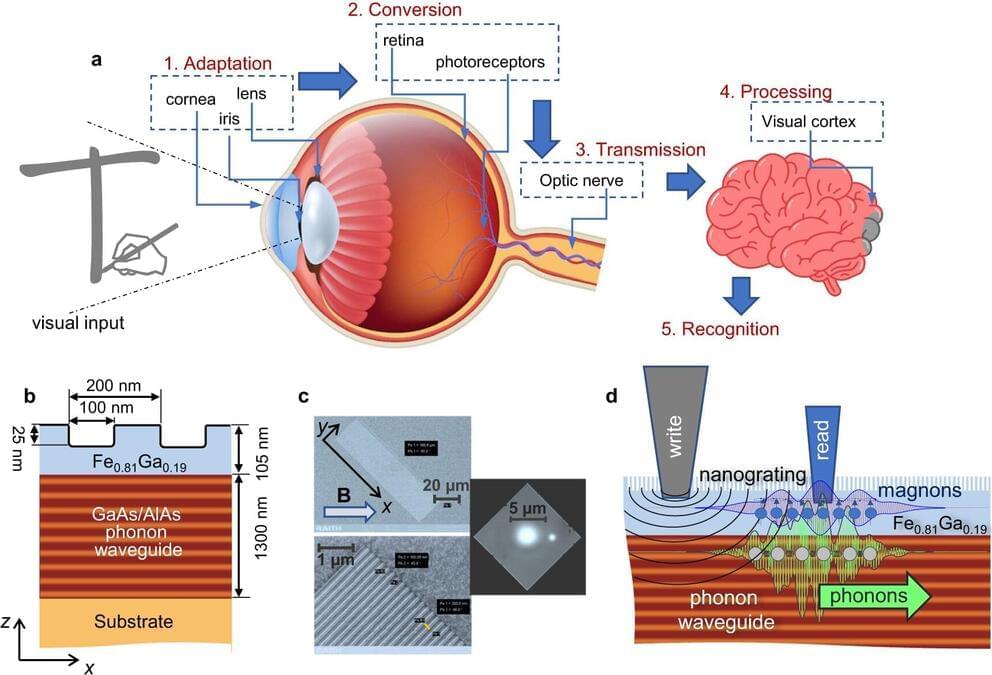In the future, modern machines should not only follow algorithms quickly and precisely, but also function intelligently—in other words, in a way that resembles the human brain. Scientists from Dortmund, Loughborough, Kiev and Nottingham have now developed a concept inspired by eyesight that could make future artificial intelligence much more compact and efficient.
They built an on-chip phonon-magnon reservoir for neuromorphic computing which has recently been featured as Editor’s Highlight by Nature Communications.
The human sensory organs convert information such as light or scent into a signal that the brain processes through myriads of neurons connected by even more synapses. The ability of the brain to train, namely transform synapses, combined with the neurons’ huge number, allows humans to process very complex external signals and quickly form a response to them.
